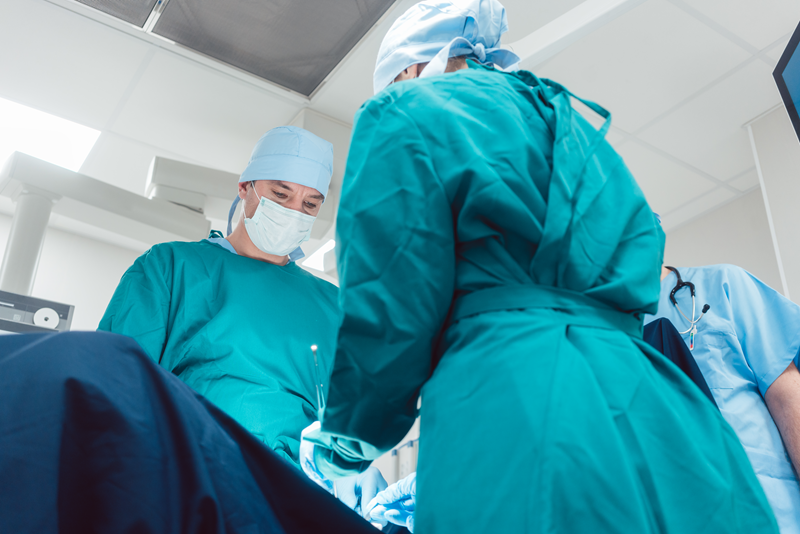 Although we start life with roughly 100 billion neurons, we start to lose neurons the moment we are born due to the effects of stress, toxins, inflammation, aging, trauma, disease, and other factors. So why can some people’s brains stay sharp and vital into old age? The answer is not in the number of neurons, but in neuroplasticity, the ability of your brain to learn and adapt to change by creating additional links to neighboring neurons. While strength in numbers is good, strength in connectivity is better when it comes to the brain. Each neuron can send out thousands of connections to other neurons. As we age, even though we lose many neurons and the ones we retain become slower, neuroplasticity means cells become better over time at making more connections. The resulting network of connection gives us the ability to complete complex tasks and even be that senior with a sharper mind than a PhD student. However, neuroplasticity depends on two main factors: stimulation and the right chemical environment. For example, a stroke patient who has smoked for 20 years (toxins and low oxygen), never exercises (low oxygen), and eats sweets and fast food every day (blood sugar issues) is going to have a different potential for recovery than someone who has a healthy diet, exercises regularly, and avoids environmental toxins. Their levels of plasticity are very different. One way to gauge your brain's potential for plasticity: Ask if it's easier to learn new facts or skills than it was five years ago. If it's easier, your brain has developed greater plasticity. If it's harder, you have inefficient plasticity. If you are in the second category, don't despair. Given the right tools and environment, your brain can improve its plasticity. How to support your brain's plasticity Our brains are incredibly adaptive, and given the right care — oxygen, fuel, and stimulation, they can stay healthy and sharp well into old age. Anti-inflammatory diet. A diet that supports stable blood sugar and addresses inflammation and food sensitivities is the foundation to restoring and supporting your brain's plasticity and health. Eat plenty of healthy fats. Our brains are composed largely of fats,and we need to eat plenty of healthy fats to support them. Focus on fats such as cold-water fish, olive oil, avocado oil, nuts, and coconut oil. Supplementing with omega 3 fatty acids is a great way to support brain health. Exercise daily. A body that moves has a brain that gets oxygen. Exercise also increases BDNF (brain derived neurotrophic factor), an anti-inflammatory brain chemical that helps eliminate brain fog and improve brain function. Stress reduction. Chronic stress causes a cascade of physiological effects that reduces oxygen and increases brain inflammation. Try these time-tested ways to reduce your daily stress level:
Prioritize sleep. Without adequate sleep, the brain and body experience increased inflammation and cannot function at their best. To improve sleep, adopt these daily habits:
Address food sensitivities. Food reactivity can cause systemic inflammation that leads to brain inflammation and degeneration. Ask your functional medicine practitioner for help in determining your sensitivities. Address hormonal imbalances. When hormones become imbalanced you lose neurotransmitter activity and brain function. PMS, perimenopause, menopause, and low or high estrogen in women as well as low testosterone in men can compromise brain health and function. Simple lab testing can help determine your next steps. Brain Based Exercises: My office specializes in prescribing specific brain based exercises to work on targeted areas of the brain we find to be under activated through our testing. Exercises to improve plasticity in networks of the brain can alleviate symptoms such as Migraine, Dizziness, Post Concussion Syndrome, ADHD and more. If exercises are performed 3-5 times a day for 3-6 months the brain can drastically improve over this short period of time. If you just don't feel like yourself, schedule a neurologic examination with us today! Contact my office for more information on how to improve yours.You can call us at 317-848-6000 or contact Dr. Ralston directly as [email protected].  Obviously with the current pandemic of COVID-19, the novel coronavirus, I have been getting a lot of questions from patients regarding optimizing their immune system. So, we have been working with patients to help them understand their immune response and how to improve immune function so that the host, which is us, is less suitable for the COVID-19 virus. As you read in the paper and heard on the news reports, this is a new virus that mutated from animal species to a human virus and it is a new virus, therefore, our body does not have antibodies to this virus as of yet. The virus appears to be highly contagious and virulent to patients who are predisposed to immunocompromised, diabetes, obesity, inflammation, respiratory disorders, particularly targeting those over 60 years old. But for any patient to prevent illness and any one of us trying to ward off the effects of this virus, improving immune function is as important today as in the future. So, understanding your immune system, you basically have two players at hand with the immune system. We have the innate and the adaptive immune response. The innate immune response is basically the immediate immune response that would respond to a virus. The innate immune response is your stomach barriers, skin tissue, and your eosinophils, basophils, lymphocytes that would immediately come in contact with a potential pathogen such as a virus. The innate immune response can be influenced by anything that would stress your body, physical, chemical, psychological stress can all affect your innate immune response. Therefore, during this stressful time, trying to remain calm, trying to do things that are relaxing such as meditation, yoga, exercise, massage, even chiropractic to remove as much stress as possible. In regard to this virus, getting adequate sleep seems to be a definite important factor, especially for autoimmune patients who when their autoimmunity up regulates, their sleep/wake cycles become disrupted and their anxiety increases. Therefore, adequate sleep is probably paramount. And sadly, to say, when this quarantine happened, there is a lot more time to sit around and drink alcohol, but that is probably not a good strategy, trying to mildly to moderately consume alcohol would be a suggestion. Your adaptive immune system is more of your B and T cells. These are activated when the virus is in your body and the immune system is mounting an immune attack on the virus. Therefore, the role of the adaptive immune system is imperative as well. Some strategies we have been using nutritionally to support our patients, both innate and adaptive immune responses are products such as vitamin C. You have probably heard that vitamin C has been used in Shanghai and it has also been used in New York City intravenously. While vitamin C does not kill the virus, it certainly supports the immune system and decreases the effects of the virus on your system. Therefore, vitamin C seems to be a key influencer of the infection, so we are recommending our patients take vitamin C. You can take 1000 mg up to four times a day to bowel tolerance. Probiotics are also important. Probiotics support your gut barriers, as we talked about with the innate immune system. Taking probiotics is a key influencer of the immune system and, therefore, that is a good thing to add as well. Zinc, making sure your zinc levels are adequate is another important strategy. Optimum levels of Vitamin D are also important. Several studies have shown that low levels of Vitamin D make pt.’s susceptible to Covid. In my practice it is common to find pt.’s with low vitamin D levels especially bc of the long winters we have. Therefore, optimum levels of vitamin D are important now and moving forward. You can easily have your levels checked by your doctor; we are happy to provide this. Most pt.’s need on average 3-5K iu/day of vitamin daily just to maintain their levels through the winter. Specifically, in talking about COVID-19, it seems the pathological process is the cytokine storm that happens in the lung that creates significant breathing problems in patients who contract the virus. There are some studies that show that glutathione, which is an immune system booster, an antioxidant and an intracellular detoxifier downregulate cytokine load in the lung specifically. Therefore, I have been recommending my patients take Trizomal Glutathione, which is a product we carry. In addition, resveratrol, which is an antioxidant, has also been shown to be helpful with the effects of the virus, as well as some other Chinese herbs. Another important aspect in this managing stress. The fear and anxiety of this pandemic has been very high on some pt.’s. This stress response puts your body in fight or fight mode. As a result, cortisol, your stress hormone is increased. Cortisol weakens your immunes system, therefore managing stress is an important part of building your immunes system up. I use adrenal adaptogens to help manage cortisol and stress. Ashwagandha, Rhodiola are just a few of the compounds that I find helpful. If you find yourself really stressed, reach out to a provider for assistance. Therefore, in conclusion, if you should have any further questions about specific supplement strategies, you can feel free to contact my office at (317)848-6000. I think moving forward from this pandemic, one of the benefits may be an awakening of our need to prioritize our health and our immune system to make us as healthy and strong as possible. Monitoring your CBC, monitoring your white blood cell count and the factors of your immune system may be things that prove to be beneficial in the future rather than just looking at acute illness, looking at immune health on an ongoing basis. I hope everybody stays healthy. Sincerely, Brad Ralston |
NeuroHealth Services
|
Our Doctors |
Learn More |
|
|

 RSS Feed
RSS Feed
